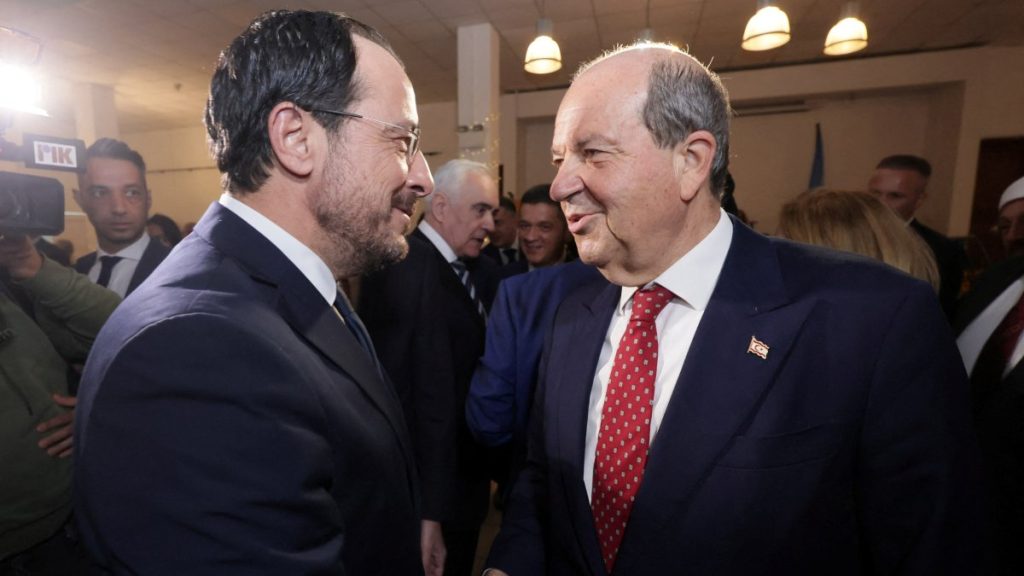The Cyprus question prevails, as the sides on the divided island are firm on their own solution, but the U.N. chief sees hope for the future.
U.N. Secretary-General Antonio Guterres said it is important to take “a critical look at the way forward” in addressing the issue. “It is also important, at this stage and after the findings of my Personal Envoy, to have a critical look at the way forward through an informal broader meeting with the two sides and the guarantor powers,” Guterres said in a report on his mission of Good Offices in Cyprus, obtained by Anadolu Agency (AA).
“I call upon all relevant stakeholders to earnestly consider how to ensure that this next engagement, which has raised hope among Cypriots that a mutually acceptable way forward is still possible, is open and constructive,” he said.
The report covers developments from June 13 to Dec. 11, 2024, and officially notes that the term of office of the U.N. Secretary-General’s Personal Envoy on Cyprus, Maria Angela Holguin Cuellar, concluded in July 2024. The report said despite the efforts by Cuellar, “no common ground had been found” between the leaders of the Turkish Republic of North Cyprus (TRNC) and the Greek Cypriot administration on the way forward on the Cyprus issue.
On Oct. 15, Guterres hosted an informal dinner with TRNC President Ersin Tatar and the leader of the Greek Cypriot community, Nikos Christodoulides, in New York.
Guterres said the two leaders agreed to some constructive next steps during the dinner, adding: “I also encouraged the leaders to consider how to bridge the gap in their positions and rebuild trust to allow movement leading to a settlement.”
The report also said, “The leaders agreed to have an informal meeting in a broader format in the near future, under the auspices of the Secretary-General, to discuss the way forward.”
“They also agreed to meet in Cyprus to explore the possibility of opening new crossing points. During the period, the two sides have begun discussing this specific issue, under the auspices of the U.N.,” it read. The report recalled that, as Holguin noted, it was agreed to hold an informal meeting in a “broader format” with the participation of the guarantor countries due to the lack of “common ground” between the parties.
Pushbacks
Meanwhile, a report by the United Nations Peacekeeping Force in Cyprus (UNFICYP) said violations on both sides persisted but showed a willingness to engage in more regular dialogue. The report, obtained by AA, said: “Repeated incidents of Greek Cypriot farmers defying UNFICYP warnings and farming lands too close to the northern cease-fire line created tensions during the period under review.”
It also said pushbacks of asylum-seekers by the Greek Cypriot administration across the Green Line, as well as at sea, continued during the reporting period.
“This action led to 142 persons being left stranded in the buffer zone between May 15 and 14 Nov. 14, 2024, including 35 children aged 9 months to 17 years old, sixteen of whom were unaccompanied,” it said. “All remaining stranded asylum seekers were admitted to the asylum procedures by Nov. 14, 2024.”
The report said in 137 separate instances, “the Aliens and Immigration” Unit of the Greek Cypriot police committed incursion violations by entering the buffer zone without authorization, either to drop asylum-seekers or to monitor them.
“Regrettably, police officers of this unit displayed aggressive behavior toward UNFICYP personnel in their pushback actions. In all instances, the mission and UNHCR raised this concerning behavior with the authorities of the Republic of Cyprus, who informed that investigations would be undertaken,” said the report.
In the report, Guterres stated that the security of the peacekeeping force was of great importance and recommended that the mandate of UNFICYP be extended. “Considering the continued contribution of UNFICYP to peace and stability and the creation of conditions conducive to a political settlement, I recommend that the Security Council extend the mandate of the mission for twelve months until Jan. 31, 2026,” said Guterres.
Cyprus has been mired in a decades-long dispute between Greek Cypriots and Turkish Cypriots despite a series of diplomatic efforts by the U.N. to achieve a comprehensive settlement. Ethnic attacks starting in the early 1960s forced Turkish Cypriots to withdraw into enclaves for their safety. In 1974, a Greek Cypriot coup aimed at Greece’s annexation of the island led to Türkiye’s military intervention as a guarantor power to protect Turkish Cypriots from persecution and violence. As a result, the TRNC was founded in 1983. It has seen an on-and-off peace process in recent years, including a failed 2017 initiative in Switzerland under the auspices of guarantor countries Türkiye, Greece, and the U.K. The Greek Cypriot administration entered the EU in 2004, the same year that Greek Cypriots single-handedly blocked a U.N. plan to end the longstanding dispute.


